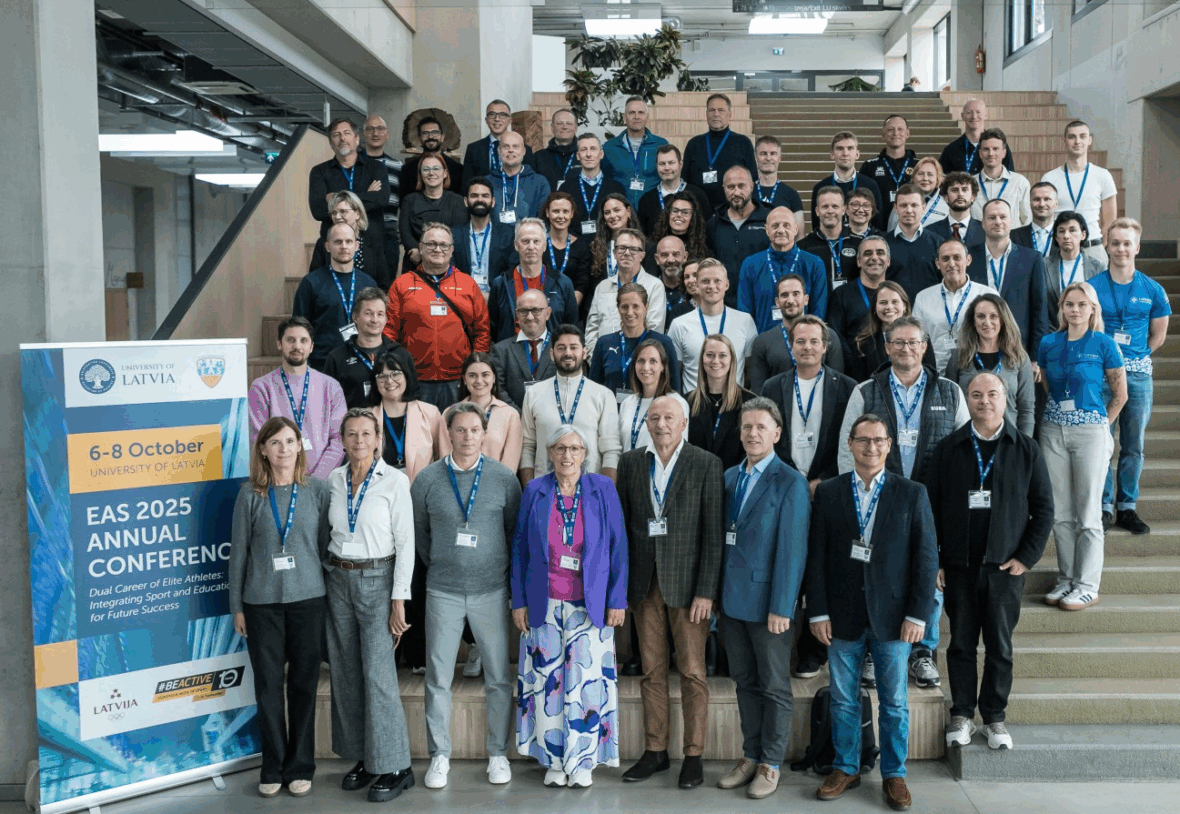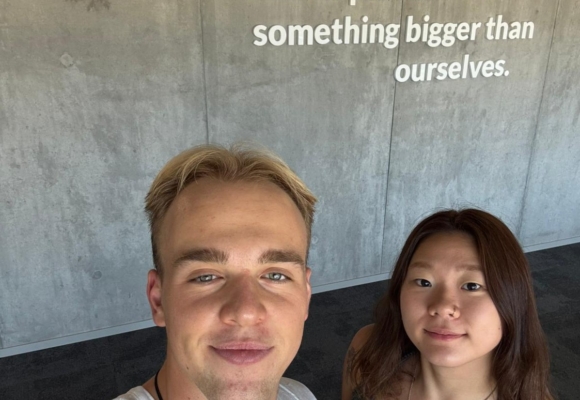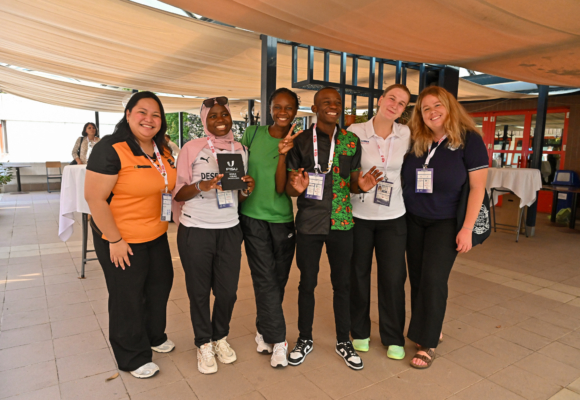The 22nd Annual Conference of the European Athlete as Student (EAS) Network took place in Riga, Latvia, from 6 to 8 October 2025, hosted by the University of Latvia.
This year’s theme, “Dual Career of Elite Athletes: Integrating Sport and Education for Future Success,” brought together nearly 100 delegates from across Europe and beyond.
The opening ceremony featured welcome remarks from Professor Enno Ence (Vice-Rector of the University of Latvia), Laura Capranica (President of the European Athlete as Student Network), Raimonds Lazdiņš (President of the National Olympic Committee), Agita Ābele (President of the Latvian University Sports Federation) and Edgars Pukinsks (Deputy State Secretary for Sports and Youth Affairs, Ministry of Education and Science Republic of Latvia). Each underlined the importance of continued collaboration and dialogue among universities, sports organisations, and policy makers to help student-athletes successfully balance the demands of education and elite competition.

During the three days of sessions, around 30 presentations and research papers were shared, addressing various aspects of dual career in higher education, and also from secondary education to professional transitions.
FISU’s contribution: empowering balanced student lives
The International University Sports Federation (FISU) was represented by Deputy Secretary General Fernando Parente, who presented “FISU Dual Career Initiative: Empowering Balanced Student Lives.”
In his presentation, Fernando Parente highlighted the long-standing commitment of FISU to the dual career agenda through initiatives such as the Dual Career Toolkit (for students, universities, and national university sports federations), research studies developed under the FISU Education Committee, and strategic partnerships with organisations such as EAS. Within the FISU Healthy Campus Programme, dual career is also part of the 100 criteria, specifically, were “universities must show how they support student-athletes”.

He referred to the key findings of recent many studies conducted by different institutions and also FISU includes, which revealed that:
- opportunities for student-athletes to combine sport and education differ greatly across continents and cultural contexts;
- most student-athletes have low awareness of their rights and available support;
- there is a need for international standards and certification programmes to ensure equal opportunities;
- the study recommends building a global dual career network involving governments, universities, sports federations, and other stakeholders.
“Exactly the kind of approach that FISU is now developing,” Fernando Parente noted.
Highlighting FISU’s Global Commitment
Among the other contributions in the sphere of FISU events, Jörg Förster (German University Sports Federation – adh), who presented “Legacy of the FISU World University Games: Focusing on the Dual Career of Student-Para-Athletes.”
Jörg Förster highlighted the historic step taken by FISU in integrating para-sport competitions for the first time at both the Winter (Torino 2025) and Summer (Rhine-Ruhr 2025) editions of the FISU World University Games, a milestone that expands inclusivity and reinforces the need to consider dual career opportunities for all student-athletes, including para-athletes.

Looking ahead
Dual career remains one of FISU’s strategic priorities, with a strong link to sport developments, education, health, and employability. The topic will continue to shape FISU’s future agenda, notably at the upcoming FISU World Forum, to be held in Östersund, Sweden, from 24 to 29 August 2026, under the theme “Active Body, Healthy Mind: How Impactful Sport Can Be at Universities.”
One of the key sub-themes of the Forum — “Dual Career-Friendly Universities” — will further explore global approaches and partnerships to strengthen support systems for student-athletes. This week, National University Sports Federations will receive official invitations to participate in this Forum, which will have the novelty of opening up participation to universities in the Healthy Campus network.
Through its member federations, universities, and networks such as EAS, FISU continues to reinforce its mission to empower students to achieve excellence in both mind and body, helping them become leaders who positively transform society. This is expected to have a positive impact on student wellbeing, resilience and employability, nut also to foster stronger universities and support systems, as well as recognition and visibility in the university sports world.



